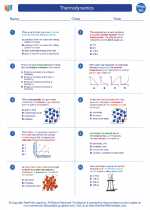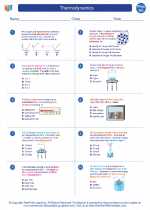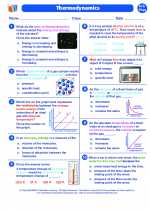Mutation
A mutation is a change in the sequence of DNA. This can occur due to various reasons such as exposure to radiation, chemicals, or errors in DNA replication. Mutations can be classified into different types:
- Point Mutation: This involves a change in a single nucleotide in the DNA sequence. It can be further divided into:
- Substitution: In this type, one nucleotide is replaced by another. For example, in the sequence ATC, the "A" is replaced by "G" resulting in GTC.
- Insertion: An extra nucleotide is inserted into the DNA sequence. For example, in the sequence ATC, an extra "G" is inserted resulting in AGTC.
- Deletion: A nucleotide is deleted from the DNA sequence. For example, in the sequence ATC, the "T" is deleted resulting in AC.
- Frameshift Mutation: This type of mutation occurs when the addition or deletion of nucleotides shifts the reading frame of the genetic code, leading to a completely different protein being produced.
- Chromosomal Mutation: This involves changes in the structure or number of whole chromosomes. Examples include deletions, duplications, inversions, and translocations.
Mutations can have various effects on an organism. Some mutations are neutral and have no effect, while others can be harmful or beneficial. In a population, mutations are a source of genetic variability, which is essential for the process of evolution.
Study Guide for Mutation:
When studying mutations, it is important to understand the following key points:
- The types of mutations and their specific effects on the DNA sequence.
- The factors that can cause mutations, such as environmental factors and errors in DNA replication.
- The importance of mutations in genetic variability and evolution.
- How mutations can lead to genetic disorders and diseases.
- The techniques used to study and analyze mutations, such as DNA sequencing and polymerase chain reaction (PCR).
It is also helpful to practice with examples of DNA sequences and understand how different types of mutations can alter the genetic code and ultimately impact the functioning of proteins and organisms.
Remember to review the material regularly and seek clarification on any concepts that may be confusing. Additionally, connecting the study of mutations to real-world examples and current research can provide a deeper understanding of the topic.
[Mutation] Related Worksheets and Study Guides:
.◂Physics Worksheets and Study Guides High School. Thermodynamics

 Worksheet/Answer key
Worksheet/Answer key
 Worksheet/Answer key
Worksheet/Answer key
 Worksheet/Answer key
Worksheet/Answer key
